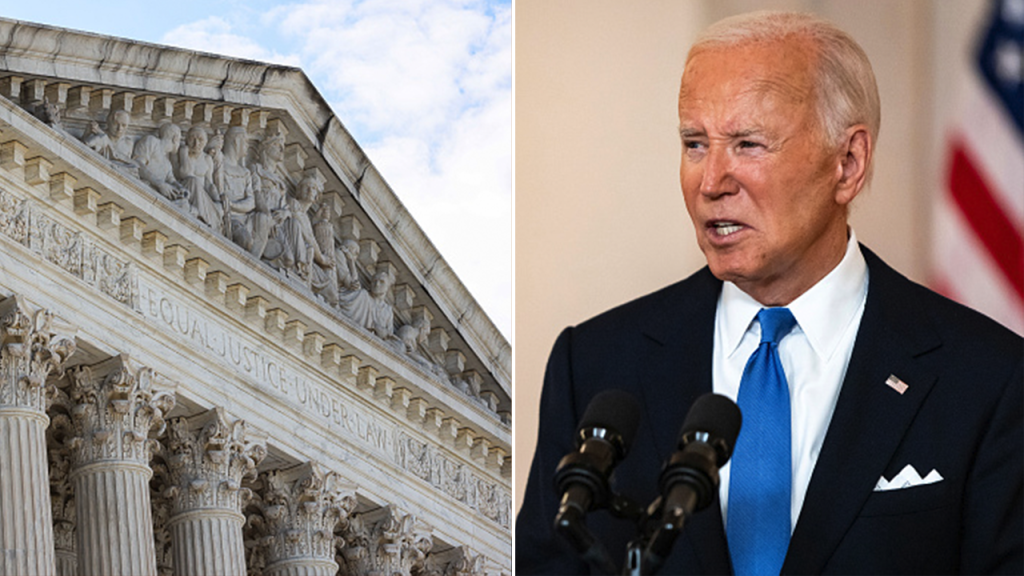President Biden’s recent call for reform of the Supreme Court, including proposing term limits and ethics guardrails for the justices, is seen as part of a broader trend of institutional criticism by some legal experts. Democrats have historically pushed for institutional change following political setbacks, such as after the 2016 election when calls were made to abolish the electoral college. Additionally, there have been efforts to overhaul Senate-vetting processes for nominees, including the elimination of the 60-vote threshold for nominations in 2013 by then-Senate Majority Leader Harry M. Reid. However, experts note that the proposed changes to the Supreme Court, such as term limits, would require a constitutional amendment, making them unlikely to be enacted.
Criticism of the Supreme Court and calls for reform are seen as inflamed by politicians and media outlets with different agendas, leading to significant disagreement over the role of the court and the need for changes. While some argue for expanding the court or implementing term limits, others emphasize the importance of the court’s independence and the need for an impartial judiciary. The recent push for reform is viewed as a response to the transition to a majority of conservative justices on the bench, particularly after the contentious confirmation of Justice Amy Coney Barrett. Critics of the proposed changes argue that they are politically motivated and not based on genuine concerns about the functioning of the court.
Former Deputy Assistant Attorney General John Malcolm has criticized the left for attempting to interfere with the independence of the judiciary, particularly through efforts to change the structure and composition of the Supreme Court. He points out that lifetime tenure for judges is intended to ensure their independence, and that calls for court reform are largely driven by a desire for partisan control over the judicial branch. Malcolm also notes that the timing of Biden’s proposals, coming late in his political career, suggests a more political motive behind the push for Supreme Court reform.
Article III Project President Mike Davis has echoed concerns about the politicization of the judiciary and the dangers of attempting to disqualify justices based on personal preferences. Davis argues that Biden and Vice President Harris are undermining the integrity of the Supreme Court by seeking to weaken its independence and authority. He characterizes their actions as a threat to democracy and accuses them of trying to consolidate power and control over the judicial branch. Despite these criticisms, the White House has not responded to requests for comment on the issue.
Overall, the debate over Supreme Court reform reflects broader divisions and disagreements within the political landscape, particularly in terms of the balance of power between branches of government and the role of the judiciary in shaping policy and enforcing laws. While some advocate for changes to the court’s structure and composition, others defend the importance of an independent judiciary and the need to uphold the rule of law. The outcome of these debates will have significant implications for the future of the Supreme Court and its role in the US legal system. As the discussion continues, it is likely that differing viewpoints will lead to further contentious debates and disagreements over the proper role of the judiciary in American governance.













